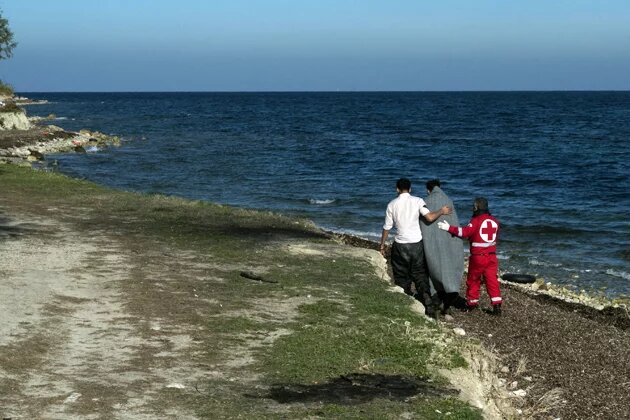
Greece as a key migrant entry point needs extra resources to secure the EU’s external border and provide humanitarian assistance. It's vital to manage the burden sharing and secure a pragmatic agreement with Turkey to stem migrant flows and facilitate returns.
Any common European policy to help deal with the current refugee crisis needs to take into account three factors: (a) it is important to preserve the Schengen area but ensure that the burden does not fall disproportionately on just a few Member States; (b) we need to find ways to counter jihadist terrorism and radicalization in our societies; and (c) based on its values, Europe has a moral duty to offer asylum to a substantial number of refugees. Historical actions by a number of European countries have been a cause of some refugee flows. Unlimited refugee access to the EU is, however, not an option given the Union’s finite absorption capacity. What therefore are our policy options?
The challenge of migrant integration
There is no magic bullet to deal with the refugee crisis and so we require effective management that takes into account a number of key issues: we need to end the fighting in Syria as soon as possible; we should provide financial support to neighbouring countries such as Jordan, Lebanon and Turkey; we also need to provide incentives to Turkey to limit the refugee flows and accept the return of refugees/migrants (as envisaged in the agreement between the EU and Turkey); we need to ensure that the EU’s external borders are properly secured and protected; we must implement the agreed refugee distribution policy so that all Member States participate fairly; Greece requires extra resources to deal with the humanitarian assistance it is providing to refugees; we need to find ways of increasing repatriation rates, although this will not be easy as it requires agreements with those countries from which the majority of migrants are fleeing. And last but not least, Member States require effective integration policies.
These will be of crucial importance, but we should not underestimate the enormous challenge of integrating refugees of such widely different cultural and educational backgrounds. Some refugees, especially those with higher education and skill in a European language may find adjustment easier but many with fewer skills will find integration more difficult. We must also realise that, even if and when the fighting in Syria comes to a halt, we are unlikely to see a decline in the flow of migrants from countries unable to offer their young people economic and social opportunities. The lure of the EU is too strong and managing these migrant flows will be a critical challenge requiring a long-term migration policy.
Securing the EU’s borders: Greece needs support
The European Border and Coastguard Agency that with national authorities and coastguards will be responsible for border management should provide more effectively secured borders. Better coordination between security and information agencies such as the European Counter Terrorism Centre, as well as with neighbouring countries, especially in the South, should also make an important contribution. NATO, while not really suited to this mission could also be asked for a modest contribution.
Greece should fulfil all its commitments regarding border protection with help from the EU. Apart from financial support, Greece requires manpower, equipment and training to more effectively deal with jihadists trying to cross through or operate in the country. Maritime borders cannot be fully protected without the cooperation of third countries and sometimes the use of force is required. “Push back” policies applied to small rubber boats filled beyond capacity will only result in a substantial increase in the number of people – mostly women and children - drowning in the Aegean. On the other hand Greece cannot become a prison for several hundred thousand irregular migrants.
The EU–Turkey agreement is a pragmatic solution
A final word should be added about the problematic EU-Turkey agreement. In this case it was unfortunately a choice between an imperfect agreement and no agreement at all. The EU was faced with the stark reality of its inability to influence geopolitical developments in and around Syria and the prospect of even greater refugee/migration flows. Negotiations on the EU side took place against a rising feeling of xenophobic/islamophobia in some Member States and the recognition that Europe had limited capacity and willingness to absorb migrants especially in areas where Muslim youth was being radicalized. The EU’s seeming inability to defend its external borders and growing Eurosceptic sentiment meant that a deal had to be hammered out.
The agreement was pragmatic rather than humanitarian. Turkey’s role was critical and its strong negotiating position required Europe to make concessions to a country whose commitment to democratic values and respect for human rights has been in decline these last few years. It remains to be seen whether Europe, in its usual lowest common denominator mode, has made choices that will prove to be at least moderately effective and whether common policies to facilitate burden sharing and problem solving will remain pertinent in the future.
This article is part of our dossier "Crossing borders – refugee and asylum policy in Europe".
